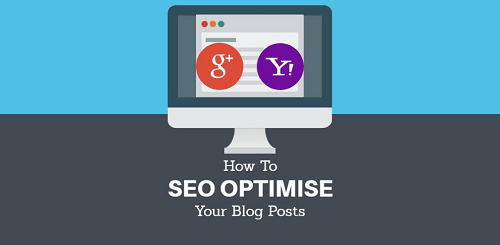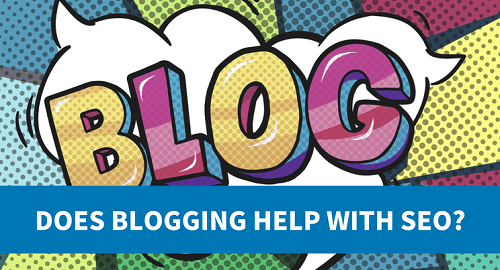How to Optimise Blogs for SEO
The importance of blogs for SEO can’t be understated. In the race to get to the first page on Google, we need to constantly generate new and relevant content; and blogs provide us with ample opportunities to do just that!
According to torquemag.io, there are over 2 million WordPress posts every day; this means there are close to 24 posts every second. This statistic conveys the huge marketing potential that blogs have. By performing basic SEO blog post optimisation, you can take advantage of the many marketing and SEO benefits. Below we list the best SEO for blogs, discuss writing blogs for SEO and blog post goals.

6 Ways to Optimise your Blogs for SEO – Blog SEO Checklist
- Research – while you may have selected a topic, you will still need to do keyword research. Odds are you already include keywords without realising it thanks to the valuable content on the topic. We already know the various ways we can do keyword research and obtain keywords with high search volumes which should translate into higher traffic.
- Placing keywords – we already know where keywords need to be placed in order to be relevant and rank better. Thanks to Yoast we are flagged when we place the keyword to far in the title. According to best practices, the following places are where you need to place your keywords:
- Metadata
- Headings and subheadings
- Introductory sentence
- Concluding paragraph
- Anchor text (this may be flagged on Yoast – I would suggest a variation, this maybe contradicting but SEO is like a game, where two opponents can try different methods to win).
- Optimise images – by making proper use of the alt text, title, and caption
- Reference others with links – often we have stories that we can link to, linking to those blogs is not only good blog etiquette but adds to your in links and we know that in links help you rank better.
- Offer an opportunity to subscribe to blogs or a CTA to encourage them to regularly check the blog page.
- Finally, use social media to broaden the reach of your blog.
How blogging helps SEO
Are blogs important for SEO? If you haven’t picked up by now, yes, blogging does help your websites’ SEO. Below are the six benefits writing blogs for SEO has:
- Keeps your website fresh and current
A website that hasn’t been updated shows that their products and services aren’t updated either. This, in turn, means that the company hasn’t factored in the changes and developments in their users or prospective users needs. While your changes to your homepage, that’s ranking, won’t be frequent; blogs offer you an opportunity to update your website with current information regularly.
- Keeps people on your website for longer
Interesting, valuable and informative content in your blogs makes people read the content from word to word. Thereby decreasing your websites bounce rate, in turn, this signals to Google that your site is helpful. Of course, a site with a low bounce rate and valuable content will feature higher in the SERPS.
- Target long tail keywords
While your homepage and other core pages will target relevant short keywords, blogs offer an opportunity to target long tail keywords. Most of the times, long tail keywords are actually searched queries, and by including these in your content, you are directly addressing the search query.
- Opportunities for internal linking
In order to be an authority of a subject matter or topic, you need to have more than enough information on the topic. Ideally, all the information on your website should relate, if they don’t, you can use blogs to tie two subjects and show the linkage. By doing so, you will be able to link to the different blogs or pages.
- Helps connect with your audience
Blogs are conversational, and when your readers enjoy the posts, they will be more inclined to share it. This means you get your brand promoted and more traffic to your site.
- Ideally, blogging should make other sites want to link to you
External linking is probably the most difficult aspect of SEO. You need to gain enough authority on Google to make other sites want to link to you. When your website achieves this fantastic stage of SEO, it shows Google that your site is trustworthy, which in turn increase your value and ranking in the SERPS.
So, what are the goals of your blog?
Below are the most common and important goals of a blog post:
- Attract a certain audience – you want to target an audience that has an interest in your product.
- Rank high in search engines – while this is not a primary goal, it is part of your overall SEO strategy – to grow the authority of your site, improve rankings and increase your traffic.
- Inspire trust, loyalty, likeability from readers – as mentioned earlier; blogs are conversational. Due to the conversational nature, the content in blogs are more likely to inspire trust and likeability from readers. It’s an opportunity to see whether your readers and users live and breathe your brand.
- Convert the audience to take action – after reading your brilliant blog, readers should be persuaded to take a certain action that you have encouraged in the blog. This CTA opportunity could be used for anything, from buying to signing up for more information; the possibilities are endless!
TL:DR – Checkout our quick How to Optimise Blogs for SEO presentation. Be sure to share your thoughts with us or queries you may have in the comments section.



